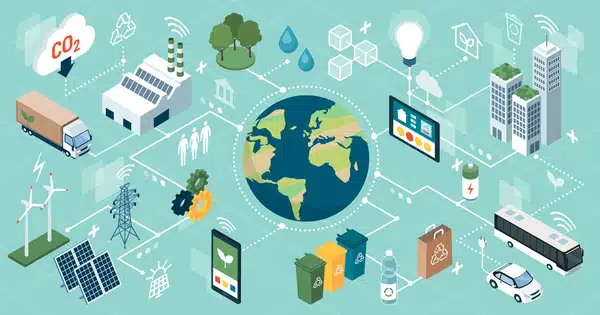Sustainable distribution is the process of delivering goods and services in a way that minimizes negative environmental impacts, reduces waste, and ensures economic viability. It involves optimizing the use of resources and reducing emissions and waste associated with the production, transportation, and disposal of goods.
Sustainable distribution refers to any method of transporting goods between vendor and purchaser that has the least possible impact on the ecological and social environment, and it encompasses the entire distribution process, including storage, order processing and picking, packaging, improved vehicle loadings, delivery to the customer or purchaser, and taking back packaging.
There are several ways to achieve sustainable distribution, such as:
- Logistics optimization: This involves designing transportation networks, supply chain management, and warehouse management to reduce waste, improve efficiency, and minimize emissions.
- Use of renewable energy: Using renewable energy sources such as solar or wind power to power distribution centers, transportation vehicles, and other logistics operations can reduce greenhouse gas emissions and minimize the carbon footprint of distribution.
- Green packaging: Using environmentally friendly packaging materials that are recyclable, reusable, or compostable can reduce waste and minimize the environmental impact of distribution.
- Collaboration: Collaboration between businesses, suppliers, and logistics partners can reduce duplication, optimize resources, and reduce waste.
- Reverse logistics: This involves the collection, refurbishment, and recycling of products and materials at the end of their life cycle, reducing waste and promoting a circular economy.
- Sustainable supply chains: Companies can work with their suppliers and partners to ensure that sustainability is integrated into every aspect of the supply chain. This includes selecting suppliers who prioritize sustainability, reducing waste and emissions throughout the supply chain, and promoting ethical and fair labor practices.
- Last-mile delivery: Companies can focus on making their last-mile delivery more sustainable by using alternative delivery methods such as bike or electric vehicle couriers, offering in-store pickup options, or using lockers to reduce the need for individual deliveries.
Overall, sustainable distribution is essential for the long-term viability of businesses and the health of the planet. By adopting sustainable distribution practices, businesses can reduce their environmental impact, improve their bottom line, and meet the growing demand for sustainable products and services.















